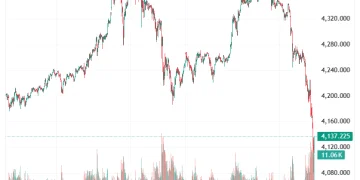Sierra Leone’s President Julius Maada Bio Elected ECOWAS Chairman Amid Regional Turmoil
Sierra Leone’s President, Julius Maada Bio, has been elected as the new Chairman of the Authority of Heads of State and Government of the Economic Community of West African States (ECOWAS).
His election was confirmed during the 67th Ordinary Session of the ECOWAS Authority held on Sunday, June 23, in Abuja, Nigeria. President Bio takes over the one-year rotating leadership from Nigeria’s President, Bola Ahmed Tinubu.
A former Brigadier General who briefly led Sierra Leone as a military head of state in 1996, President Bio returned to power through democratic means in 2018 and secured a second term in office in 2023 after a tightly contested election.
His appointment comes at a delicate moment for ECOWAS, which continues to face considerable challenges including political instability, military coups, and a growing fragmentation of the regional bloc.
Four of ECOWAS’ 15 member states—Mali, Burkina Faso, Guinea, and Niger—are currently under military rule, undermining efforts at regional cohesion and democratic governance. The situation has been exacerbated by the formal withdrawal of Mali, Burkina Faso, and Niger from ECOWAS, following their establishment of the Alliance of Sahel States (AES), which has signalled a pivot away from traditional ECOWAS frameworks.
President Bio’s own leadership is expected to come under intense scrutiny, given lingering post-election tensions in Sierra Leone, the shadow of alleged coup attempts, and the self-imposed exile of his predecessor, former President Ernest Bai Koroma, who remains in Nigeria amid legal investigations back home.
With the region’s geopolitical landscape undergoing rapid change, President Bio will be expected to spearhead efforts to restore constitutional order in member states under military rule, rebuild trust among ECOWAS member states, and reposition the bloc as a credible force for integration, peace, and development.
Analysts say the new ECOWAS Chair will also need to recalibrate the bloc’s diplomatic and security strategies to reflect new political realities, while ensuring the region remains focused on economic recovery, trade facilitation, and collective security.








